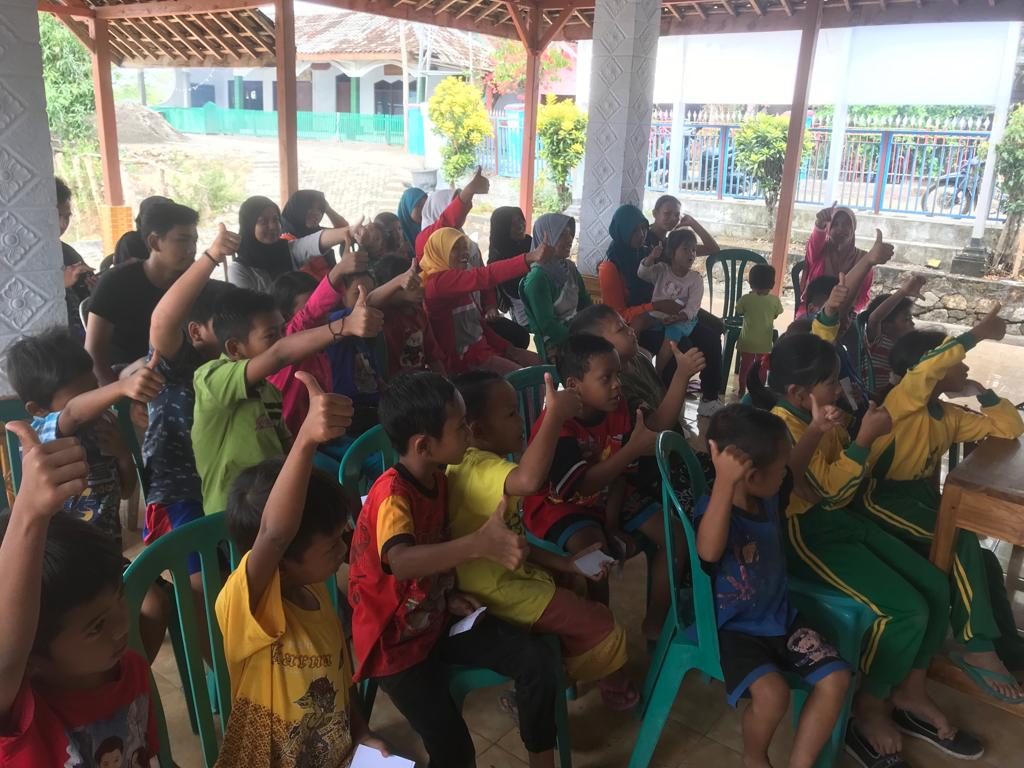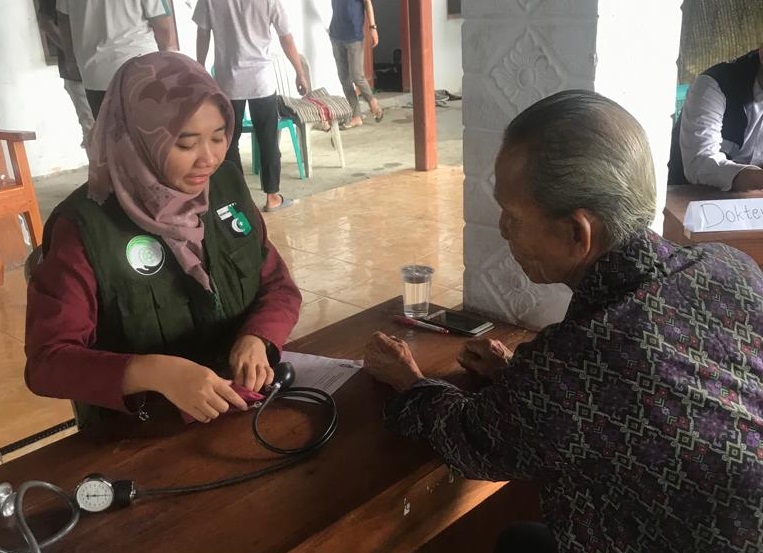UNAIR NEWS – Ministry of Community Service Student Executive Board (BEM) of Universitas Airlangga (UNAIR) continues to encourage community service in the community. One of the new villages, Ngepung Village, Lengkong Subdistrict, Nganjuk Regency, in Sendanggogor Hamlet, is an area in the arid hill area with stony road access.
One of the remote hamlets has clean water crisis and often suffers from drought in the dry season. Nganjuk Regional Disaster Management Agency (BPBD) always sends two trucks of water every two days for around 200 households, but it is still considered insufficient to meet the needs of residents.
There are still problems in health, environment, education, and economy in the community. They include midwives who are less active; remote and difficult access to health services; garbage problem; clean water; the absence of a decent library in elementary school and other problems.
Based on that, BEM UNAIR Community Service 2019 held an event entitled “Village Community Service Movement (GAD)” from Friday, November 1, 2019 to Sunday, November 3, 2019 in Sendanggogor Hamlet, Nganjuk.
GAD is a service program that aims to empower people as well as finding a new village to continue Village Building Movement which had previously been carried out for six years in Jolosutro, Blitar.
In this GAD, BEM UNAIR Community Service held several activities such as free medical treatment with UNAIR Islamic Student Health Institute (LKMI); social mapping; village consultation; healthy exercise with the community; environmental health promotion; and the practice of eco-innovation by the Airlangga Public Health Student Association (APHSA).

Dwi Yana Bekti, Head of the Ngepung Village, during the village consultation, expressed his gratitude as UNAIR students visited and lived in the remote village. He expected the village development and community empowerment by UNAIR students.
“This remote and extraordinary village actually has a lot of potential, but we or the people here are not yet capable enough,” he said.
“The people here grow tobacco and corn, but after harvest they sell it right away, there is no innovation whatsoever to support the economy,” he added.
Furthermore, secang and yam wood drinks are very potential for them, but good processing and marketing methods are their weaknesses. The village community is expected assistance, in terms of advocacy by the provincial government and Perhutani for improving road access. (*)
Author: Ulfah Mu’amarotul Hikmah
Editor : Binti Q. Masruroh





